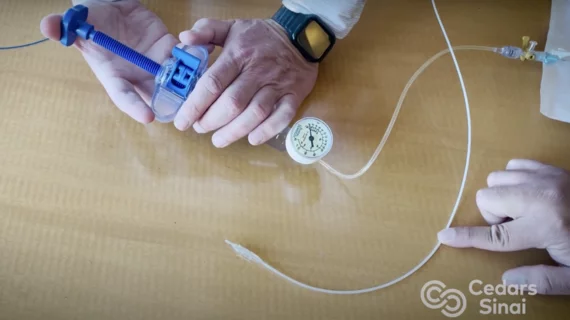Pediatric cardiologists at Cedars-Sinai in Los Angeles have shared a new look at the potential impact of adjustable stents for children.
The Minima stent, developed by Renata Medical, was designed to be fully adjustable. It can be implanted at birth, with a size of less than 2 mm, but it is then expanded as needed as the patient ages. The hope is that, unlike other stents implanted in children, it will never need to be replaced.
Cedars-Sinai, one of four U.S. hospitals currently examining the potential of these stents in an early feasibility study, shared the story of Yvette Honda-Schumacher, who was 20 weeks pregnant when her child was diagnosed with tetralogy of Fallot. Honda-Schumacher’s son, Jake, was born in 2018 and went on to have a series of significant heart issues. In March 2022, when Jake was 3, Cedars-Sinai recommended that he receive two Minima stents. Jake’s procedure appears to have been a success—he was home within a few days—and his doctors see no reason why he cannot have a normal life full of sports and any other activities he may want to try.
Evan Zahn, MD, director of the division of pediatric cardiology at the Smidt Heart Institute at Cedars-Sinai, actually helped the team at Renata Medical design the Minima stents. He now serves as their chief medical officer in addition to his role at the hospital.
“At some point, because the stent has a fixed diameter, the child is going to need open-heart surgery to get that stent out,” Zahn said in a prepared statement. “We've been waiting for a solution for decades.”
“What's beautiful about this is that it's using cutting-edge scientific discovery to address a real clinical need for our patients,” added Dor Markush, MD, an assistant professor of pediatrics and cardiology at Cedars-Sinai and a primary investigator of the early feasibility study.
This stent has not yet been fully approved by the U.S. Food and Drug Administration.

